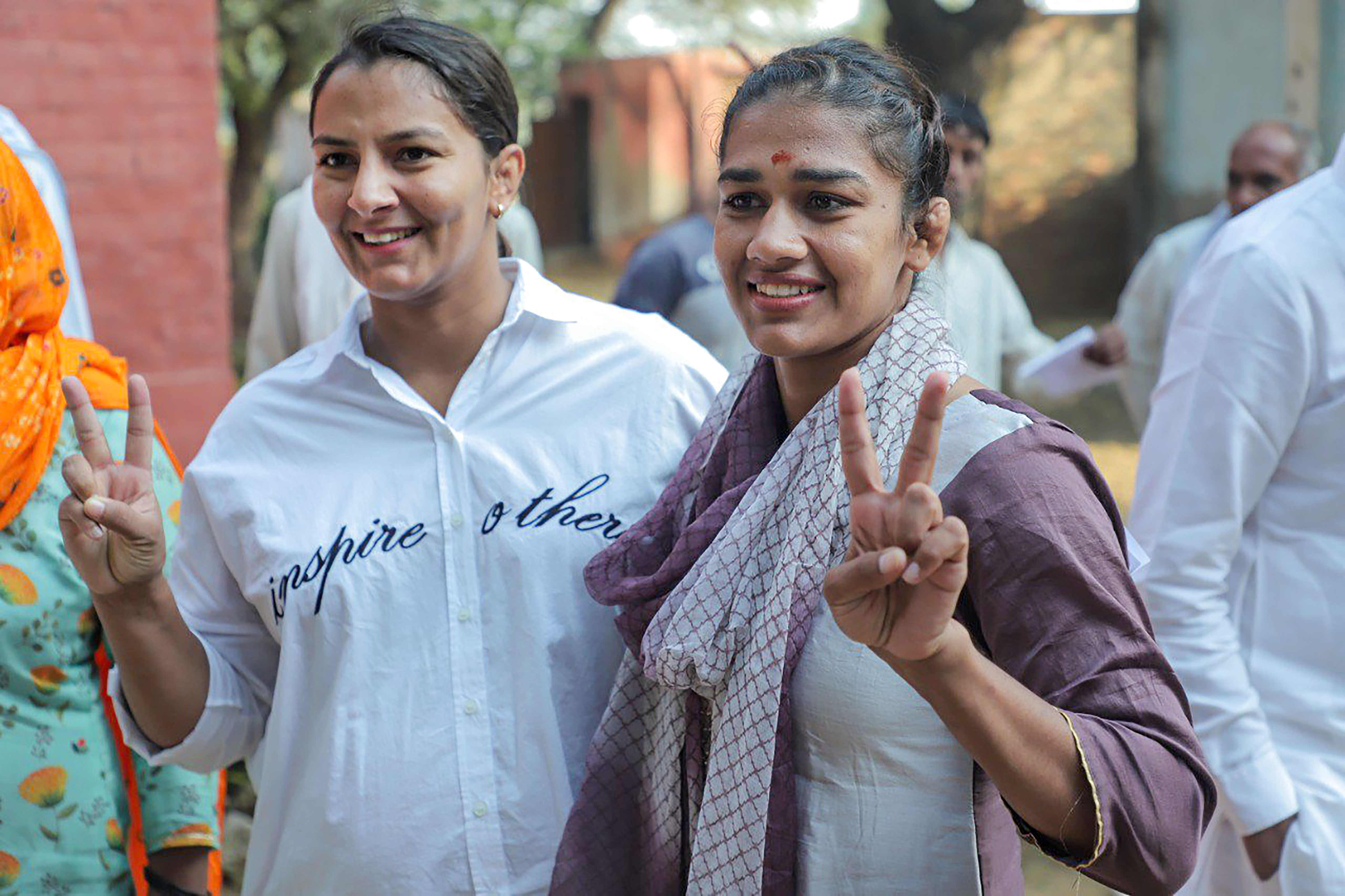
Maharashtra, Haryana polls will prove we are a single-party democracy
In a few hours from now, news channels will tell us what we already know about the ongoing round of elections—that the BJP is sweeping both Maharashtra and Haryana. Whatever be the individual numbers, the BJP tally is likely to be humongous in both these states.

In a few hours from now, news channels will tell us what we already know about the ongoing round of elections—that the BJP is sweeping both Maharashtra and Haryana. Whatever be the individual numbers, the BJP tally is likely to be humongous in both these states.
In Maharashtra it will win around 210 seats with its ally Shiv Sena; in Haryana it will easily cross the 60-seat mark. Anything less than these numbers would be a surprise and shock for the BJP.
The parallel theme of the elections is the decimation of the Congress. Don’t be surprised if the Congress wins more seats in the 90-member Haryana assembly than in Maharashtra, which has 288 constituencies.
The results would indicate how this round of elections has been a walk-over for the BJP. The opposition has surrendered to the Narendra Modi-Amit Shah onslaught and India has not just become Congress-mukt, as promised by the Prime Minister, but opposition-mukt. These polls will officially anoint India as a single-party hegemony with just a few pockets of resistance in southern and eastern states.
Why is the opposition getting decimated or co-opted — think Nitish Kumar — in an argumentative, diverse and multi-cultural nation like India?
Also read: Assembly polls: Maharashtra records 22%, Haryana 33% voter turnout till 1 pm
One of the reasons for the BJP’s dominance is the global trend of societies becoming more and more parochial and getting caught up in identity politics, a trend that we loosely call nationalism. From the US to the UK — where Brexit has become a symbol of countries trying to close their minds and borders — voters are seeking refuge in old racial, religious and demographic identities.
As historian Yuval Noah Harari writes in the bestseller 21 Lessons for the 21st Century, the vacuum left by the breakdown of liberalism is being tentatively filled by nostalgic fantasies about some local golden past. “Similar nostalgic dreams that mix nationalist attachment with religious traditions underpin regimes in India, Poland, Turkey and numerous other countries.”
The BJP has positioned itself smartly in this global debate. It has become the party of India’s Hindus, torchbearer of nationalism and a raconteur of nostalgic tales and myths that tell voters how it aims to bring back the golden past by correcting the mistakes of history. Voters are thus reacting to its emotive issues — temple, registry of citizens and threat to its borders from Pakistan and within (the minorities and Kashmiris).
This ploy was showcased with devastating electoral effect during the campaign where the PM and his party left no opportunity to talk about Article 370 and Kashmir in faraway Maharashtra, lionise Hindutva icons like VD Savarkar and inundate the news cycle with claims of a strategic strike across the border on the eve of voting. In this swirl of emotive issues, the current downturn in economy, lack of jobs and the lockdown in Kashmir didn’t even find space for discussion or evaluation.
This ‘nationalism meets religion’ agenda has been foisted open voters with the aid of another smart manoeuvre by the BJP — its complete control over the media and propaganda machinery. In a democracy, voters are supposed to make informed choices in an election. But, what if the information itself is manipulated and controlled by one party?
Also read: BJP eyes easy victory in Maharashtra as opposition struggles
The Congress, of course, has contributed to the BJP’s domination. It has failed to convey to voters what exactly it stands for — soft Hindutva, secularism, nationalism, Article 370, liberties, lockdown? In Maharashtra, it couldn’t even decide if opposing Savarkar, whose anointment as Bharat Ratna has been promised by the BJP in its manifesto, was morally right or politically suicidal. So, we witnessed the sorry spectacle of half of its leaders calling Savarkar a turncoat and British stooge only to be shut up by former PM Manmohan Singh who declared that the party doesn’t find anything wrong per se about Savarkar but is opposed only to his ideology.
Over the past few months the Congress, like a hydra-headed chicken, has spoken in many contradictory voices on all these issues, underlining both its confusion and cowardice. So, the choice between a party that talks of the majority, vows to suppress the minorities and protect India’s borders, and a rival that lacks clarity of thought, is seen as corrupt, cowardly and anti-Hindu is a no-brainer.
The future doesn’t augur well for the opposition. The Congress began to unravel after the Lok Sabha elections and Rahul Gandhi’s resignation and abdication of duty. Once it is decimated in Maharashtra and Haryana, it will witness a fresh round of rebellions and new faultlines. Some of its leaders are ready to do business with the BJP and bring its governments in Madhya Pradesh and Rajasthan down through resignations and defections. In a few months, we would witness the denouement of the intrigues and rivalries within the Congress.
The writing on the wall for the other parties facing elections in the next few days is clear—all of them will lose unless the country’s mood changes and liberalism makes a return. Arvind Kejriwal’s Aam Aadmi Party will be next on the conveyor belt that’s depositing opposition parties to some dark, desolate place in India where they first become irrelevant and then extinct.
In May 2019, India made a tryst with a single-party democracy. The results of this round of elections would reveal we are getting there in great hurry, carrying on the shoulders the remains of the opposition.


